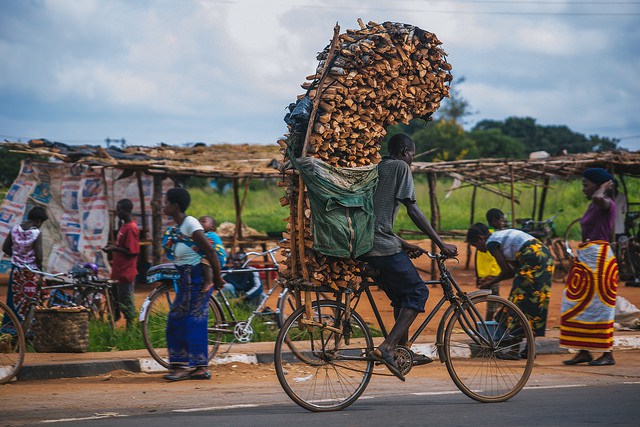Plantations International News

By Milo Mitchell. Originally released by the International Food Plan Research Institute.
In February, I joined San Francisco-based digital photographer Mitchell Maher on a trip to Tanzania and Malawi. Both people journeyed out with each other to make films and collect photos for some continuous tasks IFPRI is entailed with in the region.In Tanzania, we
signed up with IFPRI elderly research other Ephraim Nkonya as well as his German collaborators, on the enormous Trans-SEC project. This job covers a handful of towns throughout Tanzania, as well as fors example greater than 100 scientists, every one concentrating on a various technical location varying from bioenergy to poultry farming.Our footage highlighted Ephraim’s part of the task, which entailed surveying sunflower seed oil manufacturing in Tanzania. Currently, Tanzania relies greatly on imported hand oil for food preparation, despite a high potential for localized sunflower oil farming and also processing.We traveled the nation, checking out sunflower farmers, processors, plan makers, and also oil barons, looking for a remedy for boosting the manufacturing of edible oil within Tanzania, which consequently would certainly elevate farmer incomes and even profit the nation’s having a hard time economy.In Malawi, we collaborated with IFPRI’s Stefan Meyer on the Food, Energy, and Water Nexus(FEW )Project.
This task surveys the affiliations between agriculture, forestry, power, and water resources. We took a trip right into a handful of towns around Lilongwe, discovering the fostering of boosted cooking ovens and even their positive effect on the atmosphere. These brand-new stoves eat very little firewood, which reduces logging and smoke breathing along with the moment women spend compiling wood-based fuel for cooking.While chasing after the great smoky trails of these stoves, we observed firsthand the myriad connections in between logging and food and energy manufacturing. We traveled to roadside markets, where packages of firewood as well as contraband charcoal are offered. We also went to hydropower plants and also water treatment terminals, as well as discovered the unfavorable results this dependence on forest timber is having on various other sectors.Finally, we talked to scientists and government officials, in the hope that we can put together a movie convincing sufficient to urge the different ministries to work more collaboratively in safeguarding the nation’s dwindling natural deposits, all the while supporting smallholder farmers.On among our last days of capturing, Mitchell, Ken( our driver), and even I were shed in an uncharted forest. There were no significant roads, and also we were using a crude map to navigate our means to a place of reported logging. We turned at the edge of a grove of trees and even saw the blur of a guy race away right into the brushwood. Near a scruffy stump, stood an additional trembling figure.These 2 woodsmen had actually heard our
engine as well as incorrect us for the forest police. The one closest to the roadway had actually taken off, yet the other was caught and had offered up hope of getaway. Thankfully, we had the ability to explain that we were not policeman, as well as that we worked for an organization that assists farmers like him. His sorrow right away transformed into a smile, and he informed us that we should spend the mid-day with him, and document his method of life.We joined the woodsman as he returned to loading wood on his bike, preparing the cables of wood in an arc that towered more than his head. As he connected the knot to keep the branches secure, he informed us he is fretted about food, revealing that he has yet to consume anything on this day. We left him with some water and even a tangerine to deal with dehydration beneath a sweltering midday sunlight and also watched him disappear right into the trees as he started his 50 kilometer bike ride to the nearest city.By the moment he has finished his quest over rough filth roads, the sunlight will have sunk listed below the mountains. If fortunate, this woodsmen will certainly market his package for about 1,000 Malawian Kwacha (MWK), or the equivalent of just over US$ 1. Had we been the forest police, the woodsman would certainly have been issued a ticket for 5,000 MWK, a quantity comparable to about 5 days of work.Our encounter with the Malawian woodsmen brought a lot more inquiries compared to solutions. Figuring that an entire woodland could possibly be felled for as little as
$50,000, the concealed nature of this unsustainable market economic situation and its undervaluation of the natural resource base emphasizes significant difficulties at the plan production level. A key action towards resolving the concern includes raising awareness regarding the range of the problem, which is supported by sharing stories, performing study, and advertising plans that take care of the origin of the problem.Over the training course of the next month, we will begin cutting a new collection of movies at IFPRI that will help spread our work to brand-new viewers. These films will target policy makers in the hope that they will certainly have the ability to enact policies based upon the most up to date as well as finest study offered with the purpose of assisting tiny farmers and also securing at risk natural deposits in their nations. Plantations International
